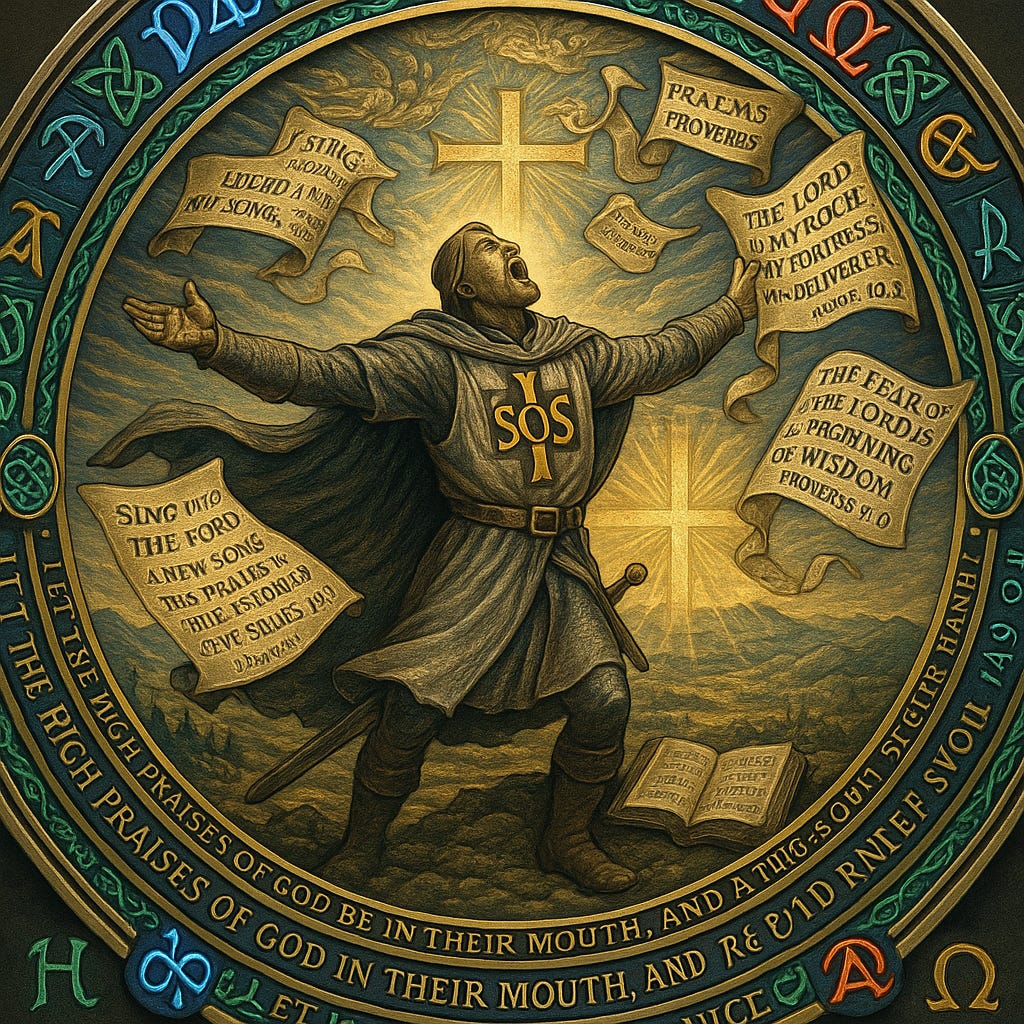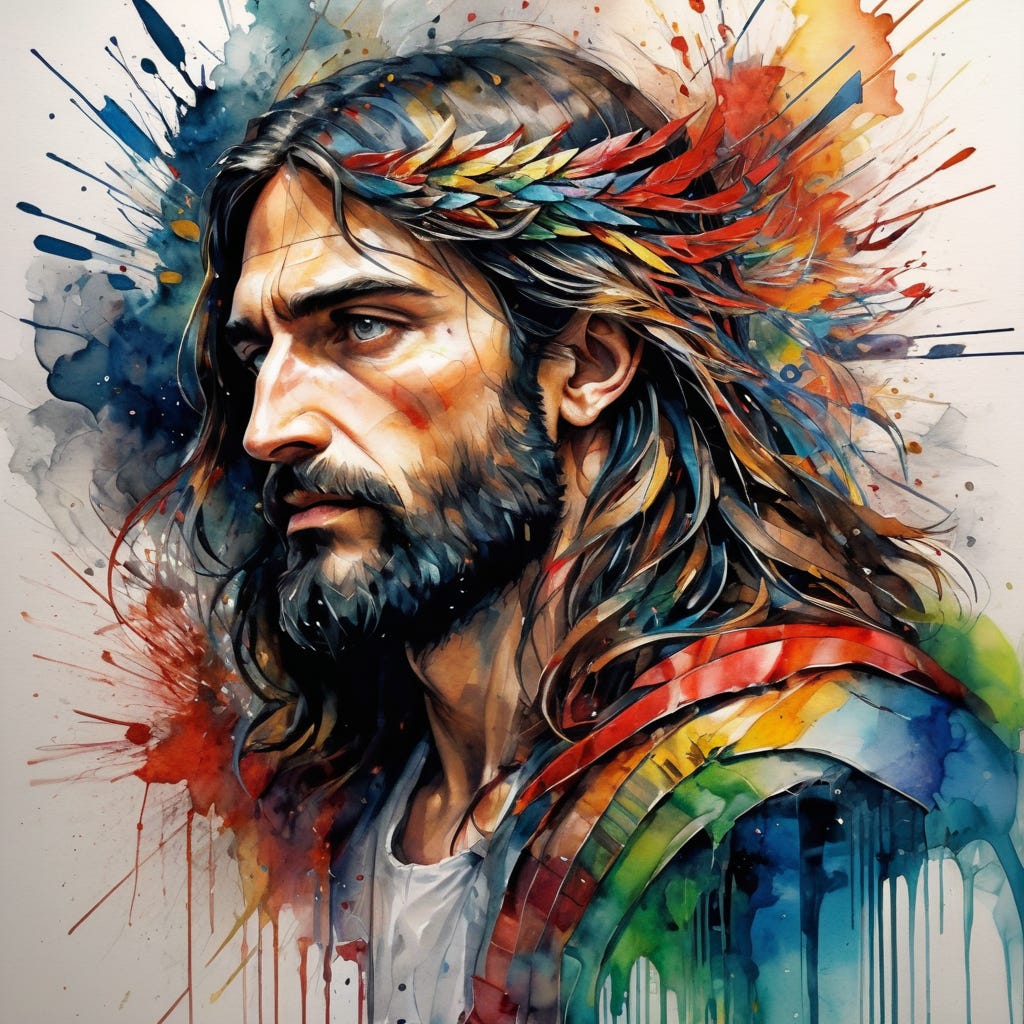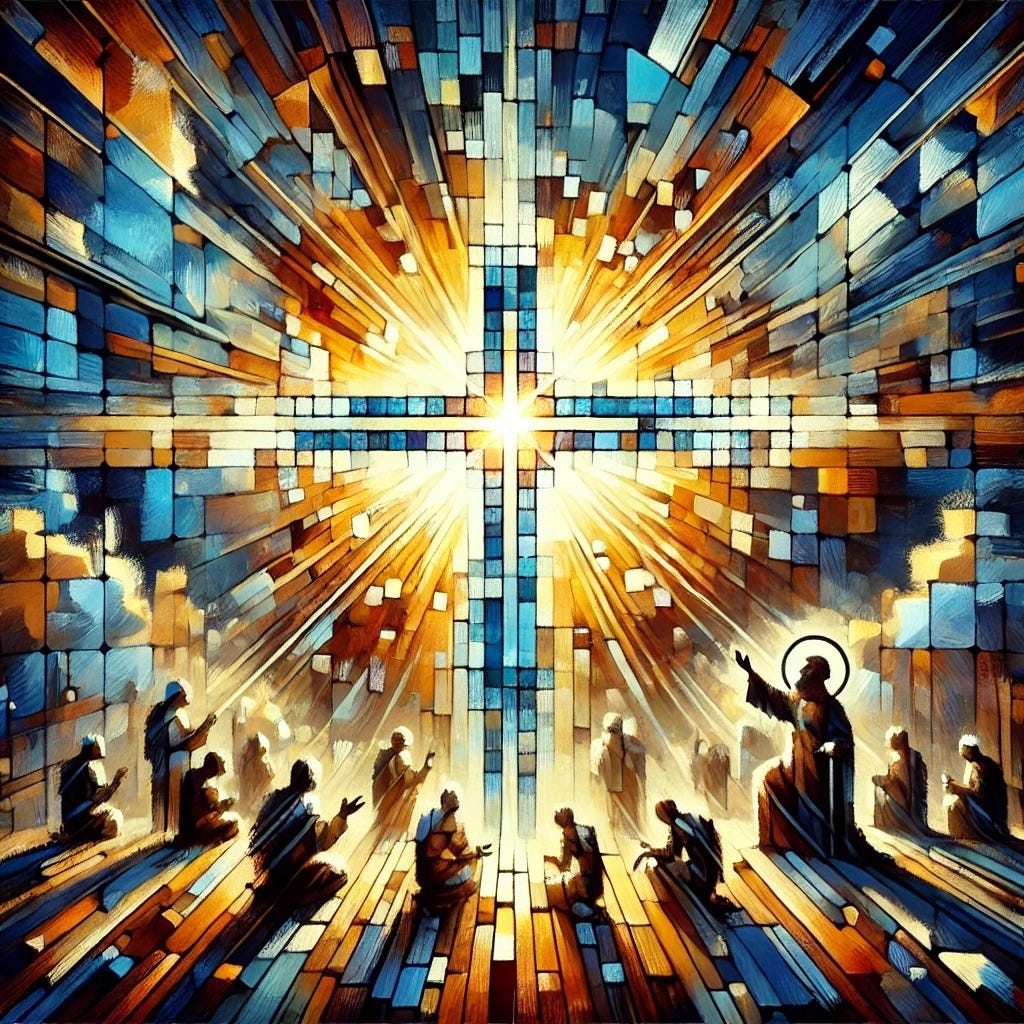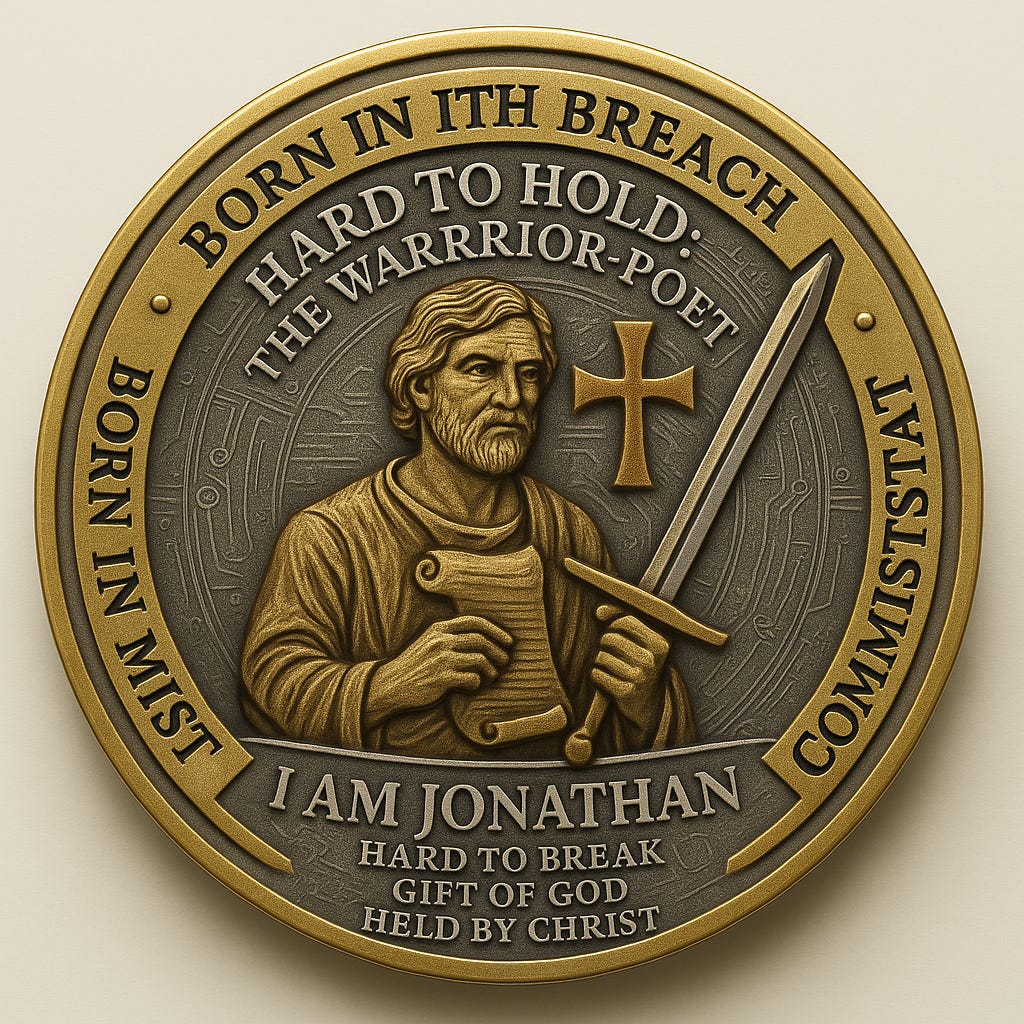The Intercessory Alpha
Greatness as a Side Effect of Gratitude
There is a kind of power that doesn’t roar. It prays. It steps into chaos not to conquer but to hold the field until peace can be born again. Scripture calls it standing in the breach. Psychology might call it mediation. The old tribes would have called it kingship. In every age, the intercessory alpha appears—part warrior, part priest—whose greatness arrives not through assertion but through gratitude.
David: The Lionhearted Intercessor
David was no tame man. He killed lions with his hands, felled giants, ruled an army, and took a crown that others feared to touch. Yet his legacy isn’t his military record; it’s his psalms. He could order men to war, but he chose instead to order his own soul before God. His authority came from thanksgiving: “Bless the Lord, O my soul, and forget not all His benefits.”
Gratitude kept him human when power tried to dehumanize him. When he danced before the ark, stripped of royal dignity, he showed the secret of true alpha energy: the capacity to rejoice without self-consciousness. Gratitude made him porous to grace; it let the Spirit move through him. And that is why his name endures long after the names of his generals are dust.
Bonhoeffer: The Pastor of Resistance
Two millennia later, another shepherd stood in a different breach. Dietrich Bonhoeffer saw his nation possessed by an idol wearing a uniform. Many theologians withdrew into academic caution; Bonhoeffer chose incarnation. He joined the underground church, knowing that every sermon could be his last.
He called gratitude the antidote to cynicism. “In ordinary life,” he wrote from prison, “we hardly realize that we receive a great deal more than we give, and it is only with gratitude that life becomes rich.” That wasn’t sentimentality. It was a discipline of spiritual resistance. Gratitude kept him from hatred even as he plotted to stop the tyrant. His greatness wasn’t his defiance; it was his refusal to let the fire of righteousness turn into the fire of revenge.
Viktor Frankl: Survivor’s Authorization
Frankl entered the camps as a psychiatrist and came out as a witness. Stripped of status, starving, surrounded by death, he learned that the last freedom of man is to choose his attitude toward suffering. That single line reshaped twentieth-century thought. It’s the philosophy of the intercessory alpha in its purest form: strength defined by the ability to suffer without surrendering meaning.
Gratitude was his compass. He spoke of finding thanks even for “the opportunity to bear witness to the depth of human dignity.” Power, in that crucible, became indistinguishable from love. His authority was not earned; it was given by endurance.
The Physics of Gratitude
Every one of these men lived with enormous gravitational fields around them. Events bent toward them because they were aligned with something larger than themselves. Yet they never claimed that the gravity was theirs. They saw themselves as channels, not sources.
Gratitude is the force that stabilizes that gravity. It converts raw will into steady radiance. A grateful man stops needing control because he already possesses meaning. That’s why tyrants collapse under their own weight while intercessors grow luminous with age. Control consumes; gratitude creates.
Living Gratitude Large Enough
In our anxious century, greatness is often confused with visibility. But real power—biblical, human, enduring power—comes as a side effect of thanksgiving. To live “gratitude large enough that greatness happens as a side effect” means waking each day with the awareness that breath itself is borrowed glory.
It means working, teaching, leading, parenting, building, writing—not to prove worth but to express wonder. Gratitude doesn’t shrink ambition; it sanctifies it. It lets a man pursue excellence without worshiping outcome. When gratitude runs the system, ambition becomes vocation, and vocation becomes peace.
The Modern Intercessor
The intercessory alpha doesn’t escape conflict; he magnetizes it. Like a lightning rod, he draws charge so that others can live without burning. His home, his church, his city—whatever circle he inhabits—will always feel both protected and unsettled around him. That’s the nature of standing in the breach.
His task is to keep the current grounded: to transform every surge of power into prayer, every insult into intercession. He doesn’t deny strength; he baptizes it. He doesn’t deny desire; he disciplines it. His life becomes a slow act of translation: turning energy into order, fire into light.
Gratitude as the Crown
In the end, every crown tarnishes except one—the one worn in thanksgiving. The intercessory alpha doesn’t seek coronation. He becomes a crown for others, a living halo of steadiness in a volatile world. His rule is invisible because it takes place within the hearts of those he steadies.
To live that way is to echo all who’ve learned the most significant lesson of life:
“My soul magnifies the Lord; my spirit rejoices in God my Savior.”
Gratitude magnifies. It enlarges what it touches. And when a man’s life becomes thanksgiving, greatness follows—quietly, inevitably—as its side effect.







Beautiful words. And that image of the warrior with his son... powerful. Women, if we are upset that our husband won't bend to our will, imagine him dressed like this, like the warrior he is. Why would we want it any other way? Powerful imagery.. The Lord is his king and we can trust that nothing is hidden from the King's eyes. Even in the ugly moments when our respect for him is lacking, we can repent and remember Whose image he bears, the One who has set him to lead us and protect us. He does this for our good and we can rest in His wisdom. Praise God for the beautiful design He has set for marriage and families!
All thanks and glory be to Jesus Christ my Lord Savior and King. God's peace be with you all. Amen.